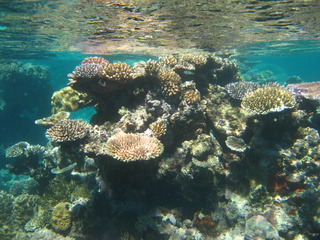Sustainability and Study AwayCenter for International and Cultural Education
Studying away presents immense challenges to sustainability. First of all, air travel is one of the ways that we as individuals leave the biggest carbon footprint. In addition, travelers tend to use more disposable items and to create more waste as a result of the need for convenience. But there are ways to mitigate and counteract these undesirable effects.

College Role.
CICE and other Gustavus staff and faculty members take the need for more sustainable approaches to our world very seriously. In thinking about our study away program portfolio, we try to balance offering a wide array of opportunities with steps to help reduce the environmental impact of study away. Our recent actions include:
- Considering the environmental effects of our own Gustavus programs, and working to mitigate both their energy use and the waste that they generate.
- Sponsoring an array of study away opportunities that are sustainability-focused or offer course work in sustainability. These programs help educate Gusties about the many complex facets of sustainability.
- Approaching our programs, as much as possible, from a decolonizing perspective that necessitates working closely with program partners to ensure that our programs are also sustaining, rather than harming, the cultures and sites that we visit. This approach encompasses everything from thinking carefully about which community businesses to support to asking communities what they would like us to do while our group is visiting.
 Individual Role.
Individual Role.
In addition the College’s role, each individual also plays a huge role in determining how sustainable your study away experiences will be. Here are some of the steps that you can take to help reduce any negative effects:
- Reduce your air travel. You will, of course, need to take air travel for the main transit to and from your study away destination(s), but many students also use air travel during program breaks, long weekends, etc. Traveling by train or bus (or bike!) is slower but also has a much lower carbon footprint. As a bonus, slowing the pace of your travels also allows you to experience the richness of the travel itself, and of the places along the way, rather than just flying over them. Even better: keep exploring your main site on your own. Most places have many, many things to see and experience and can easily keep you busy for a semester.
- Consider buying carbon credits to offset especially the impact of your air travel. Carbon credits are purchased using a standard formula that takes into account the carbon footprint of your travels, and the money you pay is used to fund countervailing measures, such as planting of trees, stream clean-up, and similar projects. There are many places to buy carbon credits, and not all are equally reliable or accountable. Do your homework! Look into how the credits are used, and whether the agency is for-profit or nonprofit. One that many study away offices recommend is ecosphere+. The average round trip to Europe will cost you about $250 in carbon credits. Alternatively, you can also just donate the equivalent amount directly to a renewable energy project or a sustainability nonprofit, so you know exactly how it gets used.
- When you have independent lodging in hotels, look for green hotels. They’re not available everywhere, but it’s worth a look.
- When hotels offer you an opt-out on having your linens and towels washed daily, it is a greener choice. However, many hotel staff members are employed part-time and only get the hours needed to do the work, so you may also be decreasing their income. This is one of those tough choices we face when we care about both human rights and sustainability.
- Where it’s safe to do so, drink the tap water. Where it isn’t, think about using a refillable bottle wherever you can get safe potable water. (Your site staff will tell you about options for safe drinking water.) The plastic bottles from bottled water are a major source of pollution that is seldom recycled and will have effects on the environment for centuries to come.
- Support local artisans and craftspeople who practice their crafts in sustainable ways. Same for local restaurants. Local, sustainable crafts are often more expensive than factory-made, mass-produced items, but that’s the cost of paying someone a fair wage for their handiwork, which is a more sustainable option.

- Use biodegradable soaps and cleaning products that will not harm the local environment. One option that has long been popular with study away students is the Dr. Bronner’s line. In particular, students love the all-in-one product line (pure-castile liquid soap) that can be used as face wash, shower gel, and shampoo as well as laundry detergent and dish soap (yes, one bottle does all of that!). It’s safe for both the environment and you, and it comes in lots of great scents. (It does contain palm kernel oil, but the sourcing for this and many other ingredients is sustainable and fair trade.) Note that you cannot carry large containers of liquids onto planes in your carry-on luggage, so you have to think about how to pack it in the checked bag in a way that will not spill into your luggage if the bottle is damaged. They also make similarly sustainable products for hair, skin, teeth, etc. The St. Peter Food Coop stocks Dr. Bronner’s and can order scents not already in stock. You can also order online, of course.